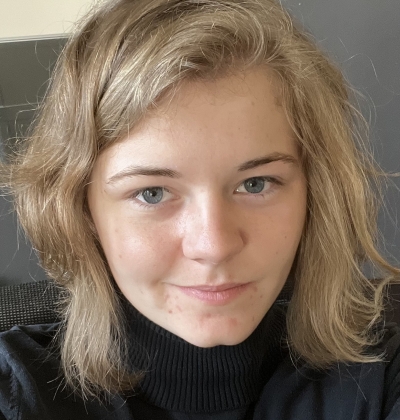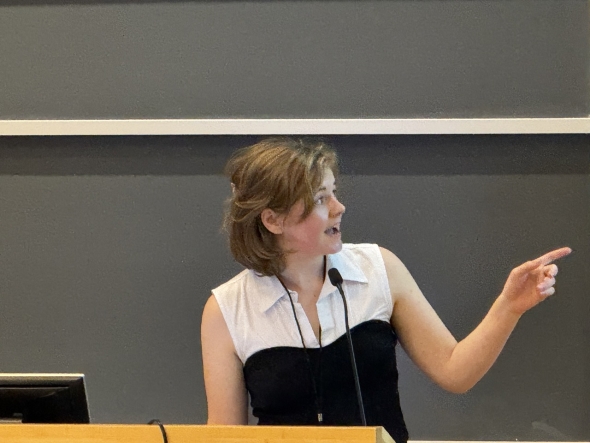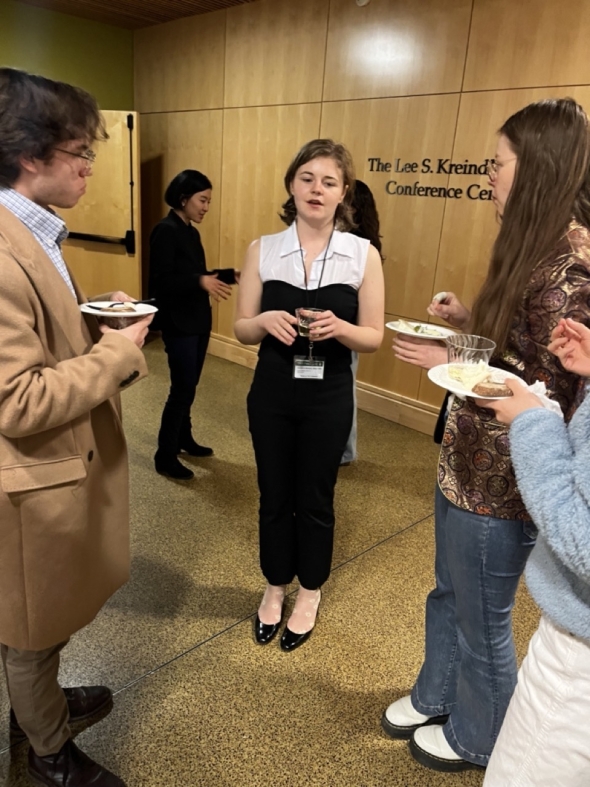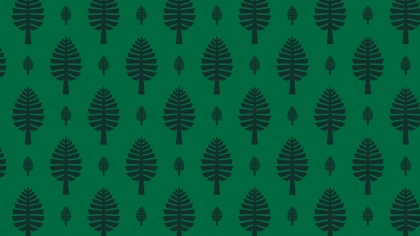
I Presented at a Conference!
On Fridays, you can normally find me in the admissions office until noon at least. But not February 23. I took a day off work because I had an exciting two days ahead of me—finally, the Memetics and Mimesis Conference was beginning!
Okay (I hear you saying), slow down. The what? Memetics? Like, as in, memes? A conference about memes? Well, yes. If you want to read more about what that entails and why we're doing it, the English Department posted a great article about it. The long and short of it is that studying English can mean a lot of things, as you can see after a quick scroll through the recent publications of the English faculty. Our study isn't just limited to great works of literature—it extends to all forms of communication, including letters, pulp novels, annotations in books, and, yes, internet communications, which naturally includes memes.
When I took Literary History III with Professor Tanoukhi in the spring of 2023, she mentioned she was pulling together a student group to produce a paper and a talk for a conference in February 2024. A conference about memes, no less. I was immediately interested. I have a lot of amateur interest in digital studies—I wrote a paper on the internet content genre of "cringe," and a lot of my thesis work involves theorizing how technological tools like the internet change our manner of communication. Plus Professor Tanoukhi said there'd be free pizza, and I love pizza.
A small but dedicated group coalesced: myself, Alyssa (a '24), Ethan (a '25), and Xiaoyu (a graduate student). We met once every two weeks for months, reading, writing, and talking about memes. Our specific area of interest was whether traditional (or non-traditional!) ideas of authorship and plagiarism can apply to memes. After all, when you share a meme with someone, you don't "credit" the person who made it. You may not even know who made it. So, do memes have authors?

We came up with a lot of ideas—far too many for a twenty-minute conference talk. Eventually, we focused on our original question: do memes have authors? The answer was more complicated than you might think. (By the way, if you want to find out what conclusion we came to, you can check out our slides here—our talk is in the "speaker notes.") When you look at a meme and don't get it, or don't like it, or can't tell what side of an argument the meme's poster is on, what do you do? You click on their account and check out their other posts and bio. Although it's not authorship in the sense that a novel has an author, it's still a paratext you incorporate when "reading" a meme.
Finally, the conference came. I spent all of Friday listening to incredible talks from faculty from across the world and across many different disciplines. Saturday had a few more talks, including my own—my group chose me to present. Thank goodness for all those info sessions I've given, right?! Incredibly enough, I gave this presentation in front of one of the scholars I had cited, with him reacting positively to our use his ideas. Throughout the entire conference I had been treated like an actual academic in the field, someone whose ideas were worth discussing, and the peak was giving my presentation alongside people with PhDs and multiple publications in internet studies. Now my group has a new task—make the presentation into a paper, to be published alongside the other papers the conference-goers generated.


















